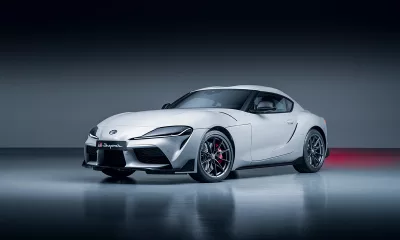I have an issue with the summary table of your BMW i3/Nissan Leaf comparative test published in the December 2014 issue, which shows the CO2 emissions for both vehicles as 0 g/km. This is, unfortunately, misleading in South Africa since a large percentage of our electricity is generated from fossil fuels. According to its 2013 Financial Report, Eskom emitted 0,98 tonnes of CO2 per MWh of electricity generated. This amounts to 980 g of CO2 per kWh of electricity generated.
However, not all the energy generated reaches customers. The report shows that 9,1% of generated electricity is lost due to transmission and distribution losses. Taking this into account, carbon-dioxide emissions are about 1 078 g/kWh that reach the consumer. Using the CAR electrical index, we see that the BMW i3 uses 15,48 kWh/100 km, or 0,1548 kWh/km, resulting in CO2 emissions of 167g/km.
Nissan’s Leaf uses 18,0 kWh/100 km, resulting in emissions of 194 g/km. The fact that these emissions take place in Mpumalanga (where most coal-fired power stations are located), rather than where the car operates, does not make them any less damaging to the environment.
ANDREW ROOS
Kloof
Answer: Your well-to-wheel argument is a sound calculation of the energy wasted in the total process from source to its eventual use in a vehicle. However, for a true comparison, we would need to also apply this to internal-combustion vehicles. The petrol/diesel that you get at the fuel station likewise takes a very inefficient route on its way to your fuel tank.
Crude oil needs to be extracted from the ground, transported, refined and then again transported to the fuel stations. We can conservatively assume a CO2 figure of around 460 g/litre of fuel produced on a global scale, but this figure is much higher in a country like ours. If we then apply your argument to internal-combustion engines, we have to add a significant amount to the tail pipe CO2 figures claimed by the manufacturers.
In short, we still believe the figure of zero CO2 emission at the point of use of an electric vehicle is correct and actually very beneficial in a crowded city environment. We do also agree that electric vehicles are not the perfect green solution in South Africa, but at least they have the potential to use renewable energy and be operated as environmentally friendly vehicles.




